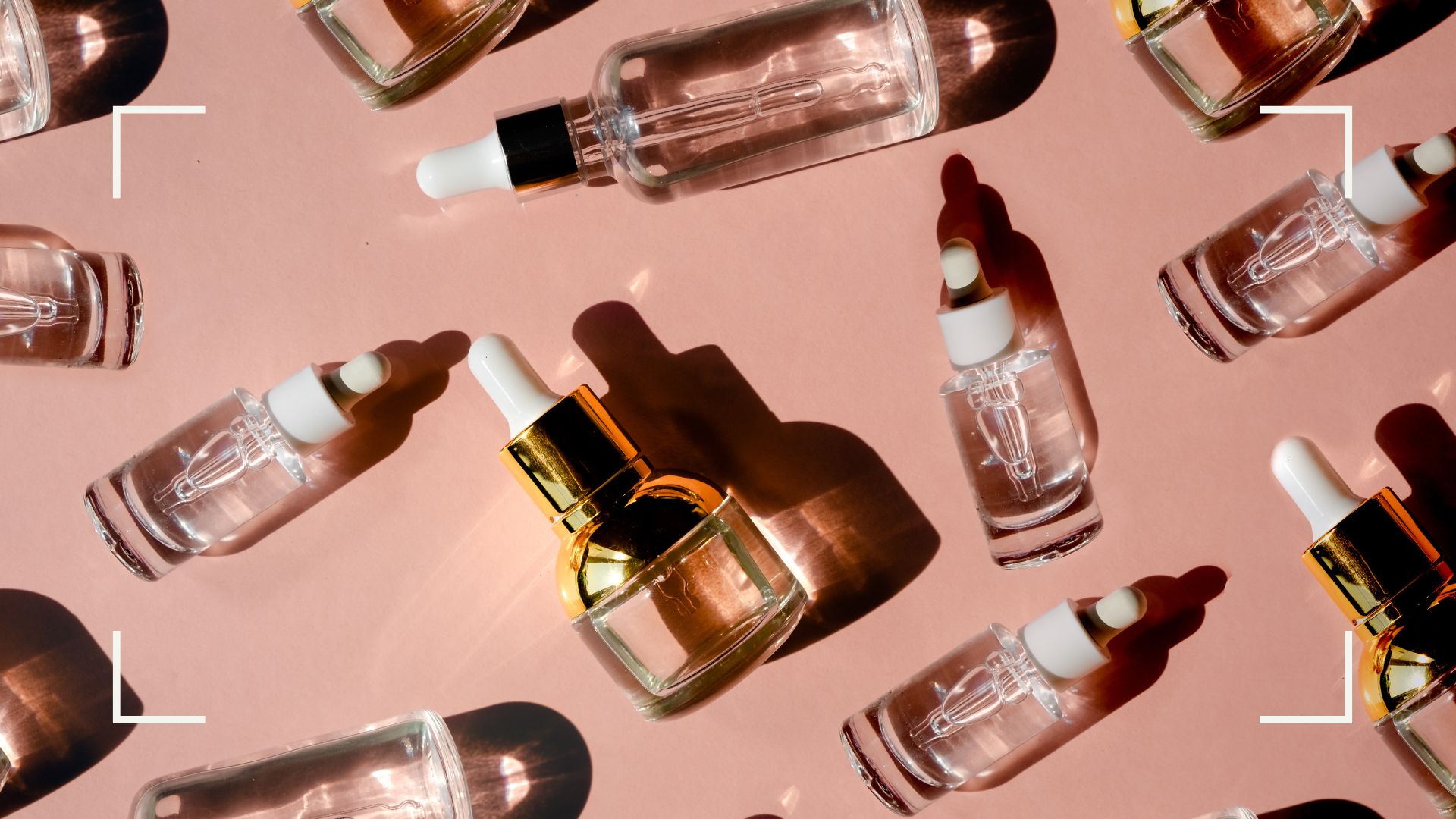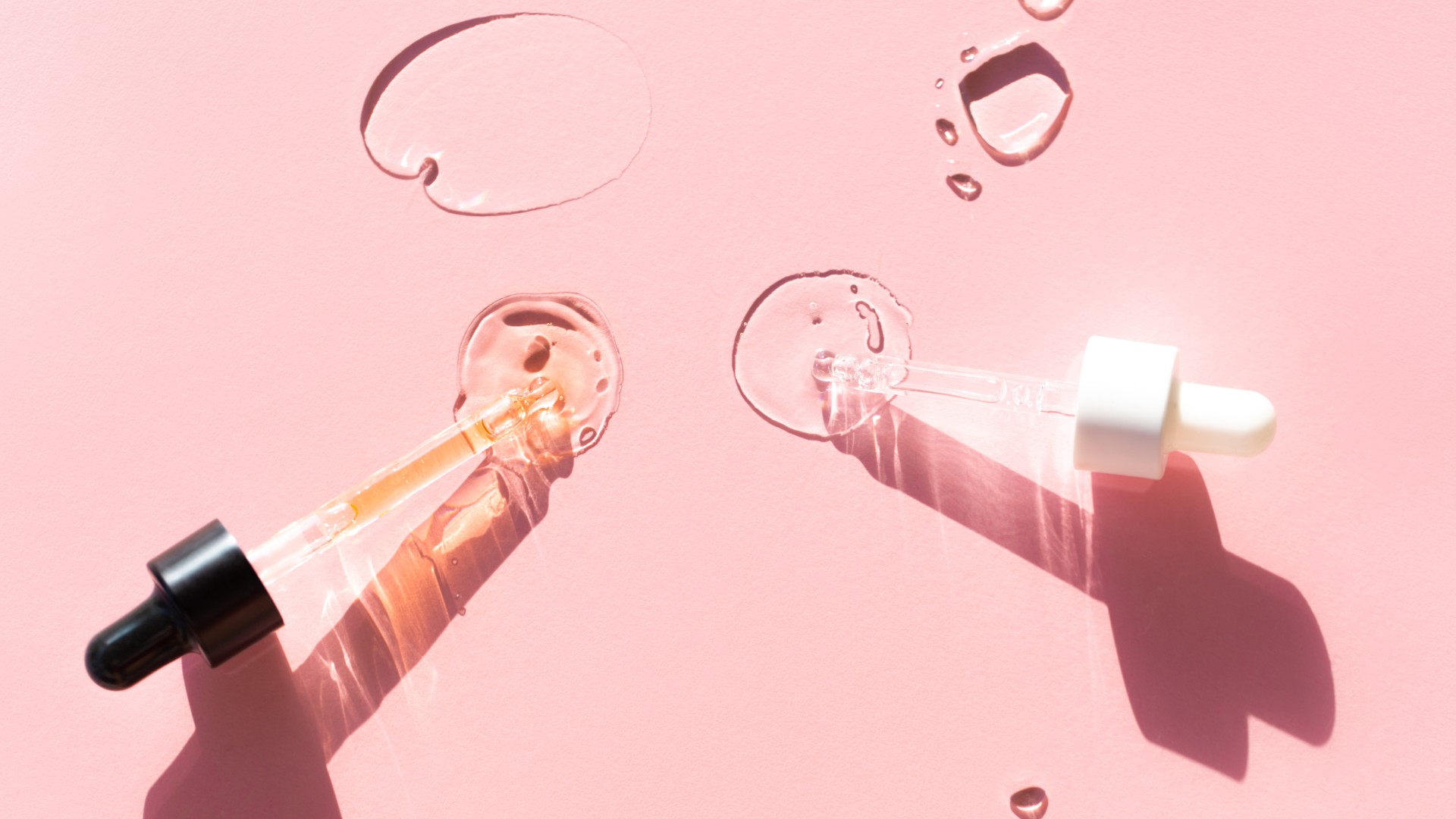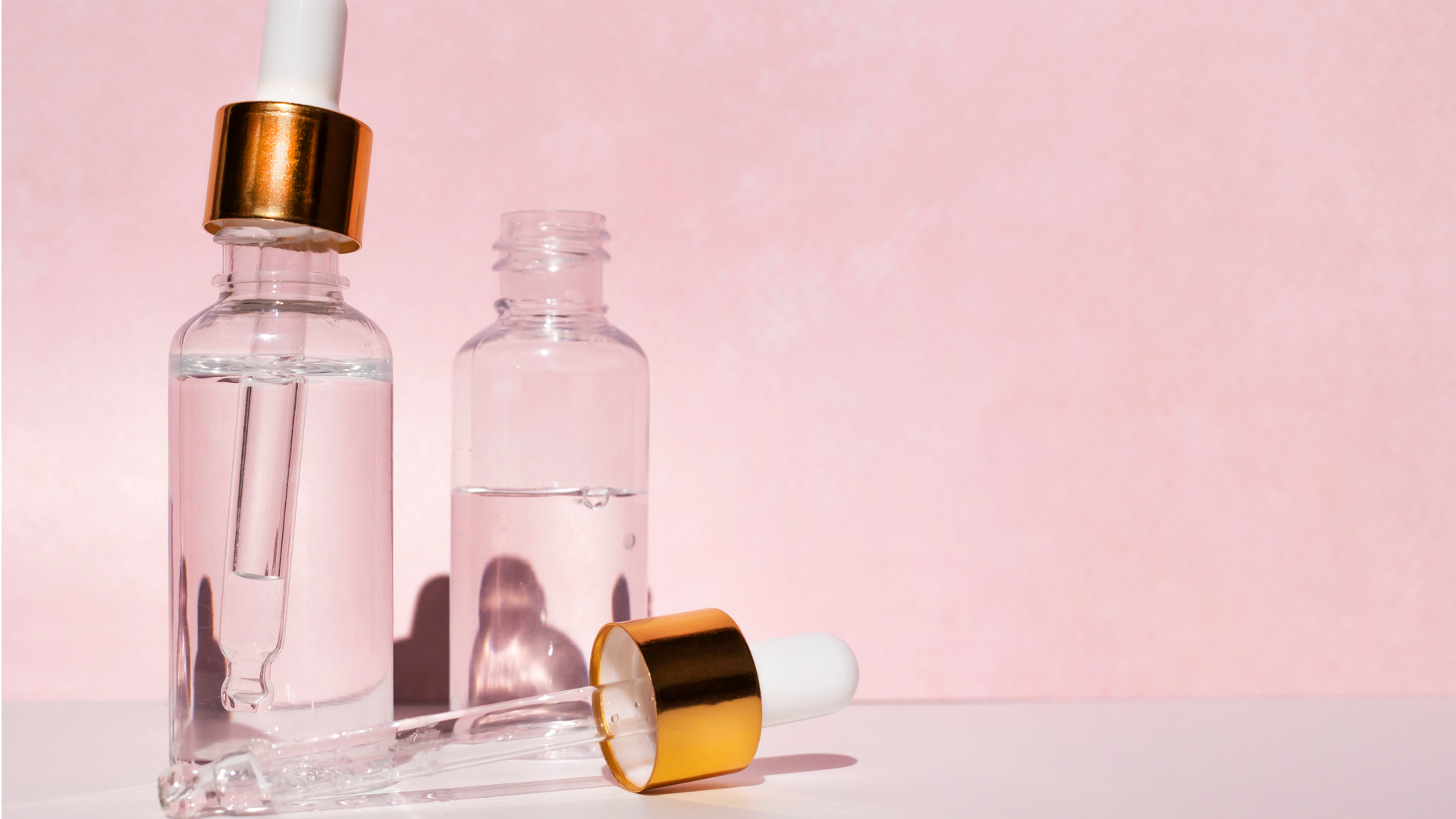Peptides vs retinol: Which is better for banishing wrinkles? Two experts weigh in
When it comes to wrinkle-busting, many debate peptides vs retinol. But which is the best for your skin? We weigh up the pros and cons of both


Which is best for banishing wrinkles when you compare peptides vs retinol? Both ingredients offer anti-aging benefits but in quite different ways.
Picking the right ingredients for your skincare routine gets more important as we age and our skin requires we require a bit more maintenance. As collagen production slows down, wrinkles appear or get more prominent, but you can improve them by picking the best skincare products for your skin type (or a cheeky dose of baby botox).
Both peptides and retinol can improve the appearance of wrinkles, as well as boasting other benefits. Retinol has long been hailed as the ultimate wrinkle-buster, but we've noticed a slow shift from skincare brands towards the friendlier, slightly lesser-known peptides. But who actually comes up top in the peptides vs retinol contest, when you drill into the finer details? We spoke to two skin doctors to get their expert take, consultant dermatologist, Dr Shaaria Nasir, and skin expert and consultant plastic surgeon Sujatha Tadiparthi.
Peptides vs retinol
What are peptides and retinol, and what are their benefits?
To fully understand both aspects of the peptides vs retinol debate, we should probably understand exactly what each ingredient does. Tadiparthi explains:
- Peptides are the building blocks that make up proteins such as collagen and elastin. They are responsible for maintaining your skin’s structure as well as maintaining its texture, tone, and elasticity. As you age, the levels of collagen and elastin in your skin decline. Peptides, when applied to the skin, stimulate collagen production, and help to provide smoother, firmer skin.
- Retinol is a form of Vitamin A and is the gold standard when it comes to anti-aging. Not only does it increase cell production within the skin, providing an exfoliating effect, it also prevents clogging of pores, evens out pigmentation, and reduces fine lines by stimulating collagen production."
Do they have any downsides?
For retinol, irritation is one of the main bugbears that get mentioned, even when it comes to the best retinol creams, and both experts echoed that sentiment. "Retinol can cause skin irritation if used too quickly," Dr. Nasir acknowledged. "You should start slowly initially to build up a tolerance to it before increasing it to daily use." If you're wondering how often should you use retinol as a beginner, she recommends using it once or twice a week.
Peptides, on the other hand, are pretty unproblematic, with no downsides - bar their slightly slower productivity (more on that later). They're unlikely to cause any irritation and won't clash with other active ingredients like skincare acids.
Differences between peptides vs retinol

Considering that they both, at a glance do the same job - encouraging collagen production - the ingredients are pretty different. Tadiparthi explains,
- "Retinol has a greater range and more powerful effects on the skin compared to peptides. Retinol increases cell production and combats the early signs of aging such as pigmentation, sun damage, and wrinkles but often at the expense of skin dryness, redness, and sun sensitivity.
- Peptides stimulate collagen production but on the other hand, have a less powerful effect on the skin. However, they are gentler on the skin and might be suitable for those with a more sensitive skin type."
Are peptides better than retinol?
As Tadiparthi hinted, while they're not irritating like retinoids are known to be, peptides aren't as effective as retinol. On the whole, when it comes to clinical trials, retinol yields more impressive results, and quicker. Dr. Nasir concluded, "There is more evidence for retinoids as the gold standard of anti-aging ingredient."
However, if to you 'better' means 'kinder', peptides could be considered superior in the peptides vs retinol debate. If you have extremely sensitive skin and retinoids are totally off the table, peptides would be better than retinol in that scenario. But when it comes to actually transforming skin, improving the appearance of wrinkles, and treating surface issues like pigmentation and acne, retinol is the superior ingredient.
Can I use peptides and retinol together?

"Yes you can use these together," says Dr. Nasir. "In fact, they complement each other," she says. Harnessing the power of both anti-aging ingredients could unlock one of the best skincare combinations to treat fine lines and wrinkles.
So really, the peptides vs retinol discussion doesn't need to be a big battle - they work best as companions. Tadiparthi explained further, "For maximum skin smoothing and firming results, you’ll want to incorporate both retinol and peptides into your daily routine." She continues, "Retinol can cause irritation and dryness of the skin, while peptides help to calm and strengthen the skin. You can either use these ingredients together in your nightly routine or use peptides in the morning and retinol in the evening."
Peptides vs retinol: the expert verdict
Having discussed with both experts in-depth, it's quite clear to me that in the peptides vs retinol debate, retinol comes up top. It's more powerful and efficient, and the industry opinion seems to be that there's much more evidence to back retinoids' efficacy. The reaction of skin irritation is admittedly a downside, but I think the benefits really outweigh that, and if you go slow and steady, the effects shouldn't be too extreme.
If you have very sensitive skin, or if you're allergic to retinoids, you could absolutely view peptides as an alternative. They can absolutely have an effect on wrinkles by speeding up collagen production and plumping up skin, just a little slower. If you imagine retinoids as a concord - fast, powerful, effective, then picture peptides as a commercial flight. It'll get you there, but maybe not as quickly or efficiently as you'd like.
Can peptides replace retinol?
We wouldn't recommend stopping replacing retinol with peptides unless your skin doesn't react well to the former. Tadiparthi does say, however, that you could swap your retinol for a peptide if you have very sensitive skin or an intensive routine. "Peptides also work well with many other ingredients, without interfering or reducing the effects of either," she says. "Peptides on their own are a great choice for sensitive skin, and for delicate areas such as the eyelids."
Personally, I can't see myself swapping my favorite retinol serum for a peptide alternative any time soon.
Sign up to our free daily email for the latest royal and entertainment news, interesting opinion, expert advice on styling and beauty trends, and no-nonsense guides to the health and wellness questions you want answered.

Rhiannon Derbyshire is the Senior Beauty Editor for Woman & Home.
She started interning for glossy magazines in 2011 while working alongside her Fashion Journalism degree. There, she was lured to the beauty desk, seduced by red lipsticks, posh shampoos, and every skincare product imaginable. 10+ years into her career, she now writes about all things skincare, haircare and makeup for six national titles and interviews celebrities, experts and brand founders. She oversees and judges products for the Woman & Home skin, hair and beauty awards, testing hundreds of products yearly.
With 3A curls, Rhiannon specialises in writing about curly hair routines and has a penchant for red lipsticks and minimalist skincare routines - with a bit of LED therapy thrown in.